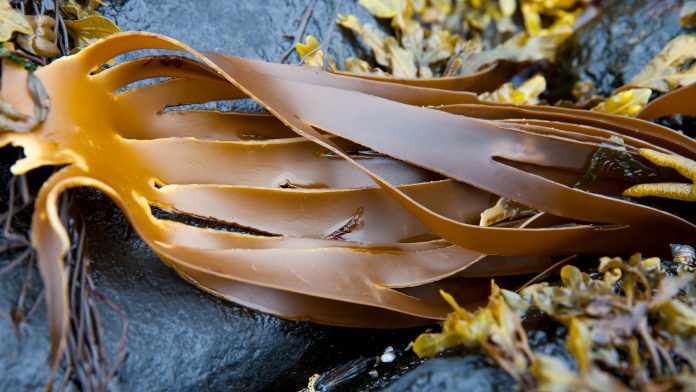A UK-based project has found that a compound in brown seaweeds could help to treat one of the most common forms of malignant brain tumour.
The EU-funded project GENIALG (GENetic diversity exploitation for Innovative macro-ALGal biorefinery) project discovered the benefits of the fucoxanthin compound which is a type of carotenoid pigment found in brown seaweeds, such as Saccharina latissima. Also known as sugar kelp, the seaweed is cultivated in Europe and is available commercially.
GENIALG project is the result of a collaboration between IOTA Pharmaceuticals, a UK-based oncology SME, the University of York, UK, and the University of Cambridge, UK.
Dr David Bailey, Director of IOTA Pharmaceuticals, said: “We found that fucoxanthin not only inhibits cancer cell growth by itself, but also improves the effectiveness of certain (antiproliferative) pharmaceutical drugs. This means that treatment of human brain cancer cells with a combination of pharmaceutical drugs and a natural product extracted from seaweed could provide a new, more effective treatment option in targeting this challenging disease in certain contexts.”
The compound could provide an effective treatment against glioblastoma multiforme (GBM), the most common and aggressive form of malignant brain tumour, with an annual incidence of three to four cases per 100,000 people in Europe. GBM is an incurable disease, with patients having an average survival rate of 12 months after diagnosis.
Part of the poor prognosis is due to tumour heterogeneity: different parts of the tumour have different characteristics, so tend to respond differently to treatment. As a result, a single treatment may kill some of the cancerous cells, while others continue to grow. Therefore, it is important to find and develop combination therapies that can tackle all parts of the tumour.
Dr Bailey further explained: “We have observed that not all pharmaceutical drug and natural product combinations are synergistic, possibly due to cell-specific mechanisms. This observation supports the idea that specific drug and natural product combinations might be more effective in certain disease contexts. Interestingly, we have also observed that fucoxanthin appears much more effective as an anticancer agent than other carotenoids, suggesting that there are structural features of fucoxanthin beyond its carotenoid nature that are important for its therapeutic effects. Exactly what these are remains to be determined.”
Brown seaweed is one of the target species in GENIALG, an industry-driven project focusing on seaweed, or ‘macroalgae’, as a valuable source of diverse bioactive compounds that have great potential to be used in pharmaceuticals, nutraceuticals, and functional foods. Pioneering companies in large-scale integrated European biorefineries and experts in seaweed cultivation, genetics and metabolomics are working closely together to boost the seaweed industry in Europe.
All GENIALG results and ongoing work, including that on fucoxanthin, will be presented at the GENIALG Final Conference, which will be held online on Monday 30 November 2020.







